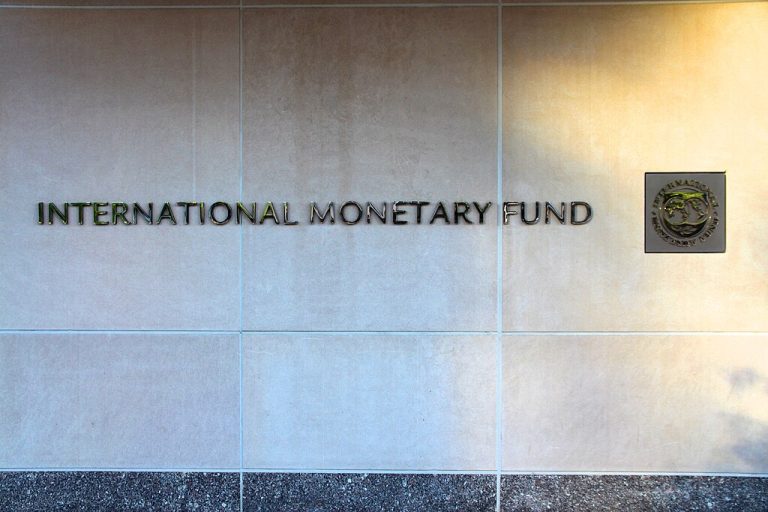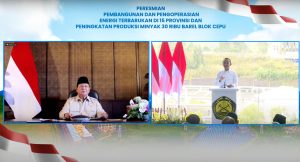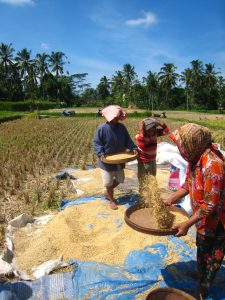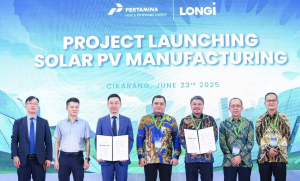Jakarta—This week’s IMF and World Bank Annual Meetings in Washington, D.C., brought pressing global challenges back into focus, including climate-driven disasters, increasing debt burdens, and the widening finance gap. However, as climate impacts escalate, decisive solutions remain out of reach, the Global Strategic Communications Council (GSCC) said in a message to the media on Saturday, October 26. The organisation noted that only incremental steps were announced, while concrete reforms and commitments failed to materialise.
On the sidelines, the G20 finance ministers met and released a communiqué, marking the conclusion of the finance track under Brazil’s presidency. The statement underscored the urgent need to reform Multilateral Development Banks (MDBs), address global debt vulnerabilities, and improve governance structures of financial institutions. Still, meaningful progress on these fronts remains uncertain.
The shadow of the upcoming U.S. elections loomed large over the meetings. As the largest shareholder of the IMF and World Bank, the U.S. has significant influence over these institutions. Uncertainty over the election outcomes has compounded concerns, though the climate crisis waits for no election cycle. The decisions made during these meetings will have a lasting impact on climate finance, including the upcoming COP29 climate summit and the G20 summit’s key objectives.
The GSCC observed that discussions from these meetings are expected to play a crucial role in shaping the new climate finance goal agreed upon at COP29 and influencing outcomes at the G20 summit.
On the roadmap for MDB reform and increased lending capacity, finance ministers approved a roadmap for reforming MDBs to enhance their ability to address global challenges. However, the Financial Stability Board urged more substantial commitment from businesses and governments to implement these reforms fully. The World Bank announced a significant development—unlocking USD 150 billion for the International Bank for Reconstruction and Development (IBRD) over the next decade by optimizing its balance sheet and adopting new financial tools.
Spain pledged EUR 400 million to the 21st replenishment cycle of the World Bank’s International Development Association (IDA21), a 37 per cent increase from its prior contribution. Latvia followed suit with a record early pledge of EUR 9.48 million, a 60 per cent increase over its IDA20 contribution. These pledges signal positive momentum for the World Bank’s target of a USD 105 billion replenishment to tackle poverty, inequality, and climate challenges.
Launch of TF-CLIMA report
The G20’s TF-CLIMA released its final report, “A Green and Just Planet: The 1.5°C Agenda for Governing Global Industrial and Financial Policies.” The report calls for an urgent global shift toward green growth, emphasizing that higher-income G20 countries must lead in financing the transition. Despite its ambitious goals, the report faced criticism for diluted language on climate finance reforms, leaving some stakeholders dissatisfied.
Critics highlighted that G20 leaders have watered down the recommendations of the TF-CLIMA report, particularly regarding reforms to the global financial system that are essential for scaling up climate finance. Many fear that the climate finance gap will continue to grow without bold financial reforms.
An interim report commissioned by Colombia, Kenya, France, and Germany detailed the worsening cycle of climate shocks leading to increased borrowing for disaster recovery. The report urged reforms to the Debt Sustainability Frameworks used by the IMF and World Bank, highlighting the interconnectedness of debt, climate change, and natural disasters.
Increased representation for Sub-Saharan Africa
The IMF announced it would add a third chair for Sub-Saharan Africa starting November 1, marking a significant step in increasing the region’s representation in global financial governance. This move is part of ongoing reforms advocated by developing nations, particularly the Vulnerable Twenty Group (V20).
Prime Minister of Barbados, Mia Amor Mottley, Chair of the CVF-V20 Presidency, expressed concern over the slow pace of decision-making. “The difficulty relates to scale and speed. In the absence of definitive decisions that can give us more space and time to invest in climate and development, this is very worrying,” she said. Mottley added, “The world is distracted by war, elections, and geopolitics. If I could recommend a single action to this body, it would settle a global methane agreement.”
As climate impacts intensify and the development-finance gap grows, this week’s IMF, World Bank, and G20 meetings underscored the importance of reforming global financial systems. However, with limited concrete actions taken, the road to meaningful progress remains long and uncertain, leaving stakeholders wary of what lies ahead. The outcomes of these meetings will be critical as the world approaches COP29 and the next G20 summit, where the stakes for climate action and financial reform are higher than ever. (nsh)
Banner photo: Marek Ślusarczyk/Wikimedia Commons













